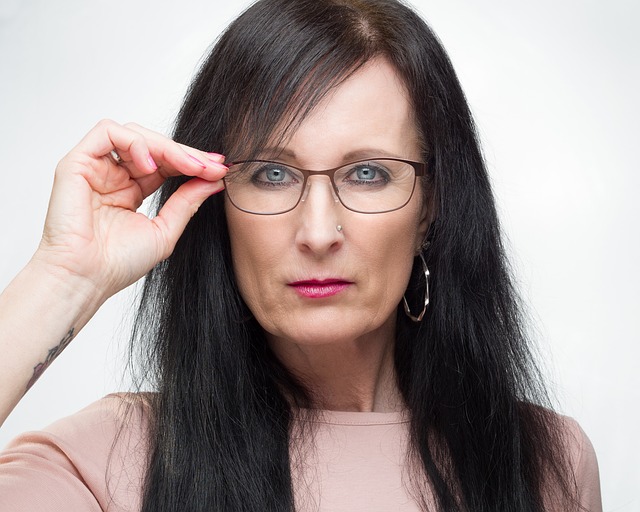Menopause is an inevitable component of ageing occurring naturally in women between the ages of 45 and 55 years, with the average age of onset at around 50 years [1].
Its hallmark is the loss of ovarian reproductive function – either occurring spontaneously, as part of the normal ageing process, or secondary to other conditions [1]. There are many menopause symptoms.
The permanent end to a woman’s menstruation and fertility, menopause begins twelve months after a woman’s last period.
And while individual experiences of menopause transition can vary widely, symptoms experienced by many women include mood swings, hot flashes, night sweats, dryness, low libido and insomnia [2].
These symptoms however can also be influenced by individual factors such as the age at which menopause occurs, personal health and wellbeing, and each woman’s environment and culture [2].
Traditional Chinese Medicine & Menopause
In Traditional Chinese Medicine (TCM), reproductive function is believed to be governed by the Kidney organ-meridian system.
The Kidney organ-meridian is thought of as the battery of the body – where the body’s “life force” or Jing is stored – and is considered to be the foundation for good health.
Overwork, a stress-driven lifestyle, insufficient fluid intake, multiple pregnancies and chronic illness is thought to progressively deplete Kidney energy to the point of exhaustion.
In Chinese philosophy Kidney Qi declines as with age, however, if Kidney Qi is already deficient before a woman enters menopause, it can manifest with various symptoms depending on the degree in which Kidney Qi declines.
As the Kidney governs bone and bone health, this may also decline through this stage of life if not adequately supported [4].
Herbal Medicines & Menopause
Traditional herbal medicines, of Chinese, Western and Ayurvedic origin, may offer symptomatic relief during menopause – some of the most common of which are listed here;
Black Cohosh is traditionally used in Western and Chinese herbal medicine and may assist in the management of menopausal symptoms including hot flushes, perspiration, headache, fatigue, sexual disinterest, irritability, nervousness, mild insomnia, muscle and joint pains, vaginal dryness and urinary frequency [5].
Kudzu is traditionally used in TCM to clear heat, moisten dryness and generate fluids [6].
Dong Quai and Anemarrhena are used in TCM for the management of menopausal symptoms such as hot flushes, night sweats, fatigue, headache, sexual disinterest, moodiness, irritability, nervous tension, mild dizziness, palpitations, mild insomnia, muscle and joint pain, skin dryness, vaginal dryness, and urinary frequency [5,6].
Shatavari is an important Ayurvedic Medicine used traditionally as a female (Rassyana) revitalising tonic for women [5].
Horny Goat Weed and Angelica are traditionally used in TCM as a Kidney meridian tonic to clear heat, to tonify the Kidney Yang and Liver Blood, and to support the health of bones, ligaments and muscles.
In TCM philosophy, depleted Kidney Yang may lead to symptoms such as fatigue, joint pain and reduced libido [5,6].
Diet, Lifestyle & Menopause
In addition to herbal medicines, specific dietary and lifestyle modifications can also help with symptomatic relief during menopause.
Consume foods rich in vitamin D, calcium, vitamin K2, vitamin E, magnesium and Omega 3 fatty acids, incorporate weight bearing exercises into an exercise routine and ensure adequate sun exposure.
Consider avoiding environmental chemicals such as phthalates – found in common plastics, cling wrap and plastic containers, and also in conventional personal care products [8] – as they are known for their xenobiotic activity.
This means that they behave as hormone-like molecules and may interfere with oestrogen production and utilisation in the body [7].
Importantly, allow self-care to become a priority by injecting fun and mindfulness into your day.
Before taking any herbal products supplements, seek advice from your healthcare professional. Always read the label, use only as directed and if symptoms persist consult your healthcare practitioner.
You can find much more information on living a holistic lifestyle in these free magazines and on our YouTube channel.

Fusion Health Naturopath and Holistic Nutritionist, Erika Morvay
References
- https://www.menopause.org.au/hp/menopause-a-primer, last visited 12/3/18
- http://www.saragottfriedmd.com/understanding-female-hormone-cycles/, last visited 12/3/18
- Lu, Y. and C. Lui (1998). Concepts and theories of traditional Chinese medicine, Science Press.
- Liu, L and Z Liu, Essentials of Chinese Medicine. 2011: Springer London. pp 69-72
- Available upon request
- Available upon request
- https://www.naturalhealthfertility.com/menopause/, last visited 13/3/18
- Koniecki D1, Wang R, Moody RP, Zhu J. Phthalates in cosmetic and personal care products: concentrations and possible dermal exposure.Environ Res. 2011






